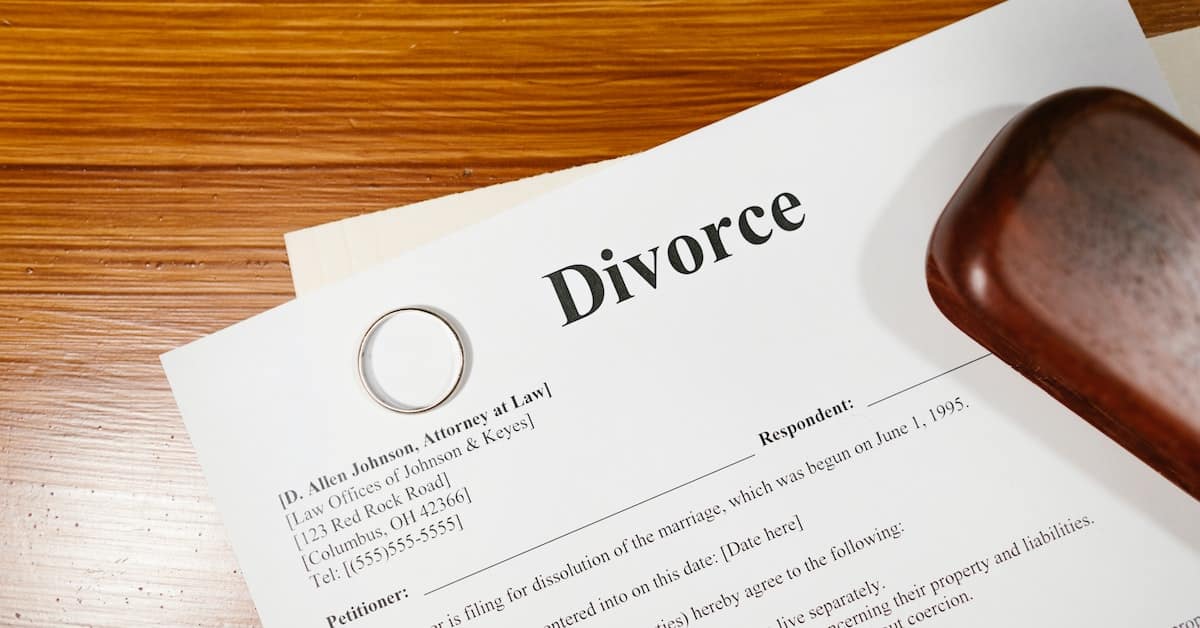Divorce is a notoriously expensive process. So, who pays for a divorce in Texas? Should you expect to foot the bill yourself, or is there a chance your spouse will need to cover the cost?
In general, it is expected that each spouse will cover their own divorce costs. The spouse who files for divorce (known as the petitioner) is expected to pay the filing fee.
In some circumstances, though, a spouse might ask the judge to consider ordering the other spouse to cover some or all of their attorney's fees. A number of different factors are considered when this occurs, and a decision about who is paying for what isn't made until the final day of the divorce proceedings.
In this article, we'll take a closer look at how it is determined who will pay for divorce in Texas.
How much it costs to get divorced in Texas depends on a lot of different factors that have to do with your own particular circumstances. For a more complete breakdown of the cost of divorce in the Lone Star state, make sure you check out our guide to the cost of divorce in Texas.

According to studies that were conducted between 2015 and 2019, it costs between $11,000 and $13,000 to get a Texas divorce, on average. Another study states that the average for divorces without children is $15,600, while the average for divorces with children is $23,500.
Texas is one of the most expensive states in the country in terms of the costs of divorce.
There are a number of factors that will influence how much it costs to get divorced, including:
If you and your spouse have no assets and no debt, are divorcing amicably, and feel confident in your abilities to forge forward without a lawyer, the divorce itself really only has to cost a few hundred dollars-- the most substantial cost is going to be the filing fee.
For situations that are more complex, though, it's generally advised to get a lawyer. Involving an attorney significantly increases the cost of divorce, but most people feel it is worth it, considering that their post-divorce financial situation is on the line. Furthermore, reaching a settlement without having to duke it out in court is much less expensive than engaging in the litigation process.
In general, each party in a Texas divorce is typically responsible for their own lawyer's fees. On top of that, the person who first filed for divorce is the only one who generally pays the filing fee.

That being said, this isn't always how things play out. Since Texas is a community property state, one spouse could potentially argue that the cost of the divorce should be equally divided between the two parties.
In Texas, the assumption is that each party will pay for their own legal fees. However, clients can petition for an order to be made stating that their spouse will cover their legal fees.
A judge could order one spouse to cover the attorney's fees of the other spouse if they have significantly more financial resources. The idea here is that a wage disparity should not get in the way of either spouse's right to quality legal representation.
The judge, at the end of the day, has the final say regarding who pays for the attorney fees associated with the divorce in Texas. They will take a close look at the finances of both spouses as well as their ability to generate income when making this decision.

A judge may decide that an individual who earns quite a bit more than their spouse should pay some or all of their spouse's attorney fees under the implication that this is just and right.
There are other factors beyond finances that can drive a judge to order one spouse to cover their spouse's fees. For instance, if one spouse has been found to be hiding assets or is refusing to comply with discovery requests, a judge might order them to foot the bill for their spouse in addition to themselves.
Here are some of the reasons that a client might petition for an order that states their spouse will be responsible for their attorney's fees:
If your marriage is ending because your spouse was unfaithful, you might wonder if this is immediate cause for them to cover your attorney's fees. This is, however, not the case. Adultery on its own isn't enough reason for a judge to order the offending spouse to pay for their spouse's legal fees.
An individual can request temporary fees under the Motion of Interim Attorney Fees if they are unable to pay their attorney's fees during the divorce process.

Whether or not the spouse is granted, is up to a judge. A number of factors will be considered when looking at the financial status of both spouses, including:
A judge might request that one spouse has to cover the other spouse's costs based on this and other information. Some spouses might be ordered to pay their spouse's attorney the same amount they are paying their own, or they might be ordered to make a flat payment.
Though you might be eager to figure out whether your spouse is going to cover your attorney's fees, this issue isn't settled until the last day of your divorce proceedings. Both parties have to be able to show the costs that they have incurred as a part of the divorce.
Divorce is a complex and overwhelming process, no matter how amicable your split is with your spouse. If you are concerned about the cost of divorce in Texas, you might be wondering if your spouse will be ordered by a judge to pay for your attorney's fees. Though it is generally assumed that each party will cover their own costs as a part of divorce in Texas, it is possible that a judge would find it fair and just for your spouse to pay some or all of your legal fees.
If you're getting divorced in Texas, familiarizing yourself with the process can help put your mind at ease. Sometimes, we just need to know what to expect in order to better handle such a difficult and complex process.
Are you searching for resources to help you learn more as you get ready for divorce? Make sure you check out our Texas Divorce Laws blog for more articles, guides, and information.